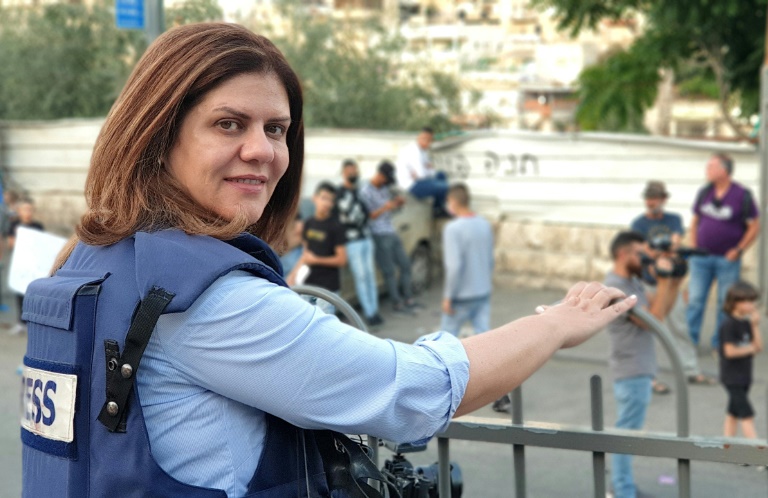Al Jazeera’s Shireen Abu Akleh: pioneering Palestinian reporter

Young Palestinians described Shireen Abu Akleh as an inspiration, especially to women, many of whom were motivated to pursue journalism because of her
Jerusalem – Palestinian-American journalist Shireen Abu Akleh, who was shot dead in May while covering clashes in the Israeli-occupied West Bank, was widely hailed for her bravery and professionalism.
Her killing, which her employer the Al Jazeera network, eyewitnesses and Palestinian authorities blamed on Israeli forces, sparked widespread grief and outrage which were compounded when Israeli security forces beat mourners at her funeral.
Israel’s army on Monday conceded for the first time that there was a “high possibility” that she was shot dead by an Israeli soldier who mistook her for a militant.
After her death, young Palestinians described the 51-year-old veteran television journalist as an inspiration, especially to women, many of whom were motivated to pursue journalism because of her.
“She never tired,” Al Jazeera senior international correspondent Hoda Abdel-Hamid told AFP. “She was always there whenever anything happened… She wanted to be there, to tell the story, constantly,” she added.
In an interview shortly before her death, Abu Akleh had described herself as a “product of Jerusalem” and said that the Israeli-Palestinian conflict had shaped much of her life.
Abu Akleh, whose reporting had made her a household name across much of the Middle East, has since been memorialised with large murals painted on walls in the occupied West Bank.
She was born in Israeli-annexed east Jerusalem in 1971 to a Palestinian Christian family. Her mother was born in west Jerusalem, before the creation of Israel in 1948, and her father hails from Bethlehem in what is now the occupied West Bank.
Abu Akleh graduated from university the year the Oslo peace accords were signed and then joined the nascent Voice of Palestine radio, before switching to Al Jazeera in 1997, where she went on to become an iconic personality in Arab media.
– Breaking gender roles –
Journalist Muhammad Daraghmeh, a close friend who teaches at Birzeit University in the West Bank, described Abu Akleh as “one of the strongest journalists in the Arab world”.
Her prominence grew through her coverage of the second Palestinian intifada, or uprising, from 2000 to 2005, and her trademark sign-off, “Shireen Abu Akleh, Al Jazeera, Palestine,” was recognised across the region.
Senior Al Jazeera journalist Dima Khatib said on Twitter after Abu Akleh’s death that she was “one of the first Arab women war correspondents in the late 1990s when the traditional role of women was to present from the television studio”.
“Shireen was a pioneer in a generation that broke stereotypical gender roles in TV journalism.”
In an interview not long before her death, Abu Akleh said she was often afraid while reporting but made sure to avoid unnecessary risk.
“I don’t throw myself at death,” she told an outlet in the West Bank city of Nablus. “I search for a safe place to stand and how to protect my crew before worrying about the footage.”
Israeli police drew widespread condemnation after Abu Akleh’s funeral when officers attacked pallbearers and her casket almost fell to the ground.
Last year, Abu Akleh wrote in the publication This Week in Palestine that Jenin, the place where she died, was not just “one ephemeral story in my career or even in my personal life”.
“It is the city that can raise my morale and help me fly. It embodies the Palestinian spirit that sometimes trembles and falls but, beyond all expectations, rises to pursue its flights and dreams.”
